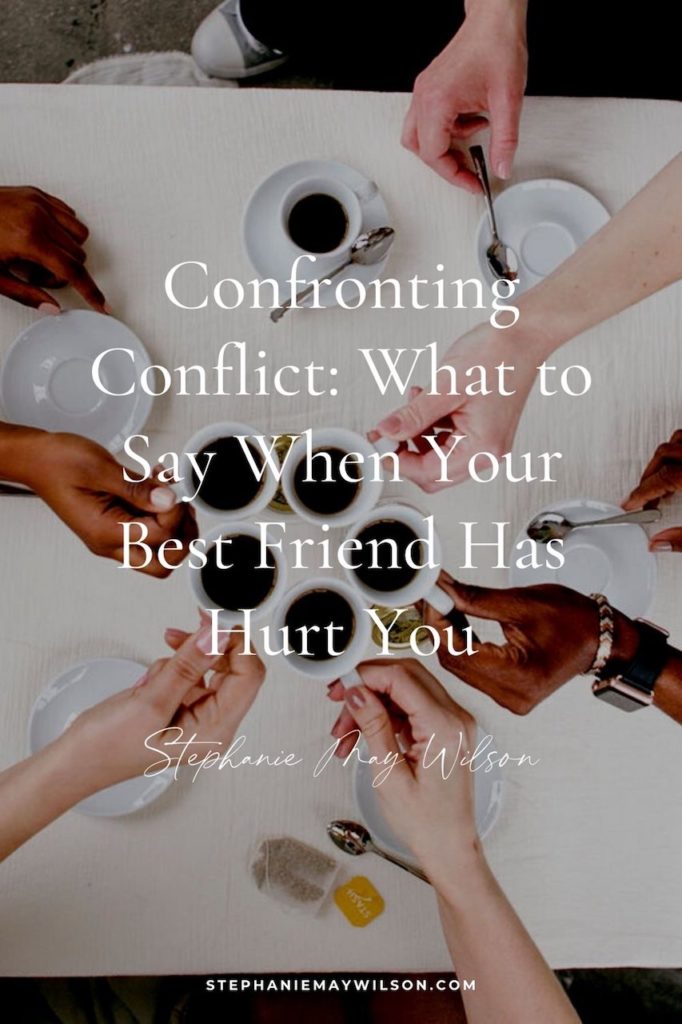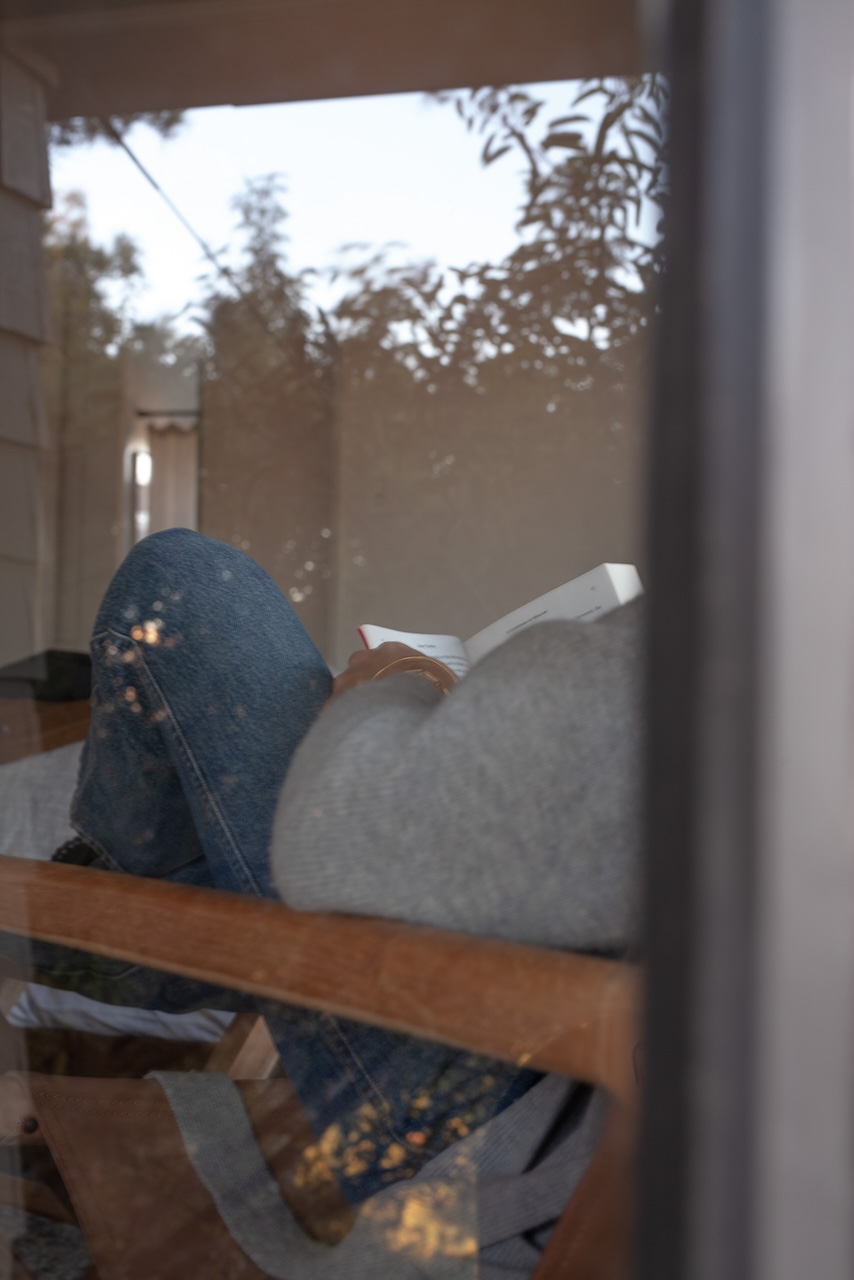I’ve been working on some fun projects behind the scenes lately that have me thinking about friendship. This probably comes as no surprise since, if you know me at all, you know friends and relationships are one of my very favorite topics!
Recently, I was excited to be a guest on the The Iridescent Podcast. The co-hosts, Nicole and Alex, have created a space a bit like my own podcast, Girls Night: a place for safe, honest conversations about life and all its messiness. The podcast is all about encouraging women to champion and inspire one another. Isn’t that beautiful?
While I was on the show, we talked about how even the best friendships aren’t perfect. It was such a good, honest conversation. I remember one of the hosts asked me how I deal with the messy part of friendship: the conflicts.
We’ve all been there, right? We’ve all had moments when a friend lets us down. When someone says something that really hurts our feelings. When we aren’t sure whether to bring up a problem because we don’t want to ruffle feathers, risk being labeled as petty, or worse—lose the friendship!
At some point, we’ve all wondered, “Am I overreacting? Or should I bring it up to her?”
Even though relationships are the thing I love talking and learning most about, it still took me a while to understand how to address conflict and resolve it in a way that’s mature and healthy, in a way that leaves you closer instead of divided. So if you’re struggling with conflict in a friendship, know that you are not alone!
I am so excited to dive in and share these tips with you. My hope and prayer is that you will feel better equipped to bravely face the conflicts with your friends in a healthy, respectful way, and that you will find yourselves even closer to each other as a result. Here we go!
Bring it up fast.
When it comes to hurt feelings or disagreements with my friends, my M.O. has always been to bring it up—and bring it up fast! It is always better to deal with something quickly before it has a chance to simmer and grow! It gets worse the longer we sit with it.
It’s so hard and scary to bring up an issue with a friend. We’re not sure what to say or how to say it. But it doesn’t have to be perfect. There have been times when I’m crying and tripping over my words, saying all the wrong things. What matters is that I said something. I was honest. I valued myself and my friendship enough to get uncomfortable and say something.
The thing about conflict is that it multiplies. Over time, the little conflicts turn into resentment; and THAT is the thing that will ruin and break our friendships.
Think about it: If you have a cut, you clean it and take care of it. You do this because you want to protect yourself from more damage. You know that if you don’t do something, it could become infected. The infection could spread. Things could get so much worse.
So I’ve learned that if something happens in one of my friendships, I need to bring it up. And I need to bring it up soon. That way, we can fix it together before the bad feelings grow. It’s so much easier (and healthier!) to say, “Hey, something you said yesterday hurt my feelings” than to bring it up a year later. Once months have passed, her response will be, “WHY DIDN’T YOU TELL ME? We could have fixed this so long ago!”
Use “I” statements.
Another trick I’ve learned is to use “I” statements when I’m addressing conflict. This is harder than it sounds! Because when you’re angry, it feels good to confront someone and say, “Hey, look at the problem. YOU did this!” But I’ve learned we get better results when we approach the conversation by sharing our feelings rather than hurling accusations.
I can remember a time when I felt really hurt and confused by one of my friends. She had a new boyfriend, and it seemed like he was taking up all her time. Honestly, I just missed her. And I felt hurt that she didn’t seem to miss me.
When I finally decided to bring it up, I knew I had to choose my words carefully.
I could have said, “You’ve been such a bad friend! You’re always too busy for me. You never want to hang out with anyone but him!”
Instead, I said, “Hey, I’m feeling hurt because I miss you. I know you’re in a new relationship, and I’m so excited for you, but I miss our time together. Is there a day next week that we could hang out? Just us?”
If I would have come in with guns blazing, she probably would have responded the same way. She would have been angry. Defensive. She might have attacked me right back, and the conversation would have spiraled.
I truly believe that because I used “I” statements, we were able to have a wonderful, healing conversation. It didn’t fix everything right then, but my resentment washed away; she became more aware of how she spent her time and decided to make some changes.
I truly believe if we come from a place of honesty, humility, and vulnerability, our friends want to help heal the conflict with us.
(And don’t forget to give her the benefit of the doubt. She might not even realize she’s hurting you! Again, that’s why it’s important to speak up!)
Be willing to let the friendship go.
Friend, this is such a tough one! I truly believe almost every good, safe friendship can survive and thrive after conflicts (big or small!). But I know that there is someone reading this today who is faced with a giant conflict. Maybe a friend has betrayed you deeply. Maybe your friend seems more like a frenemy—she is unkind and critical and unforgiving. Maybe she refuses to have an honest conversation, or she insists she will change… but never does.
If you’re in this situation, it might be time to put up some boundaries. And it might be time to let the friendship go.
A couple years ago, I decided I would no longer be friends with people who are not kind to me. If you are mean to me, if you talk about me behind my back, we cannot be friends. That sounds so obvious, but we know these things happen in so many friendships! So I had to set up this boundary for myself. And if you can relate, I hope you know you’re allowed to make the same choice. You can decide to only keep friends who are good to you.
Friend, I hope the things I’ve learned will be helpful for you and your friendships too! Conflict does not need to be the end of the world or the friendship. Settling conflicts quickly, bravely, and honestly has made all the difference for me. It has allowed me to keep such amazing friendships for so many years (and facing conflicts together has actually brought me and my friends closer, believe it or not!). Friendship isn’t always easy, but it’s always worth it. Conflicts are worth fighting through because life is so much better when we’re in it together.
P.S. Want to hear more about how I’ve learned to navigate conflict? My sweet husband Carl and I just recorded a Girls Night episode about dealing with conflict, communication, and expectations in our relationship! The conversation was SO much fun, and I think it will be helpful to you no matter what season you’re in!
Also, on the topic of friendship, make sure you check out my guide all about how to make friends in a new city!
Pin Me!






I just got into a situation with a coworker and brought up not being able to trust her because she acts one way to me and then a completely opposite way to the people she talks very badly about. Listen I’m not oblivious to playing the game but I don’t want to play this game and share deep things with someone who I can’t trust. It went over badly. And two months later continues. I have tried to apologize …honestly to just end the awkward (which makes me sound horrible) and I’ve tried to ignore it and let it go keeping in mind that if she is going to continue to act this way she was never my friend to begin with but it is hurtful. I think I could have handled it differently but if a friend had concerns with me I think I would try to assure them they had nothing to worry about instead of proving they did. Do you have any advice?
-Awe Thank you so much for sharing this information!
So true! Bless you!
Thank you so much for this post. A friend of mine hurt me deeply this past Sunday. I don’t even know if he knows he hurt me. I’ve been struggling with how to handle it: if I should say something, what I should say, when I should say it. I’m going to spend some time with God and breath before I respond. Your timing of this post was absolutely perfect. He’s a male friend, but your post was still extremely helpful.